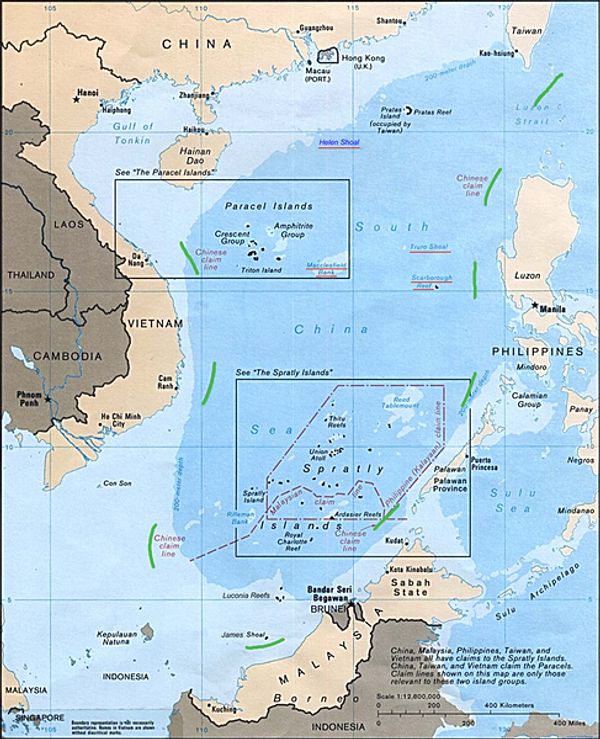According to the Annex VII Arbitration Tribunal in the 2016 South China Sea Arbitration (Merits), ‘historic title’ refers to historic sovereignty over land or maritime areas. While ‘historic rights’ may include sovereignty but may equally include more limited rights, such as fishing rights or rights of access, that falls well short of a claim of sovereignty.
Concerning the delimitation of the territorial sea, both Article 12 of the TSC and Article 15 of the LOSC explicitly include historic titles in a category of special circumstances. As regards the delimitation of the continental shelf and the EEZ, however, no mention was made of such titles in Articles 74(1) and 83(1) of the LOSC. An issue which thus arises is whether historic titles may be regarded as a relevant circumstance in the context of the continental shelf or EEZ delimitation.
The ICJ, in the Tunisia/Libya case, regarded historic rights as relevant, stating that ‘Historic titles must enjoy respect and be preserved as they have always been by long usage’. At the operational stage of the delimitation, however, the Court did not consider it necessary to decide on the validity of Tunisian historic rights with regard to Libya because the line indicated by the Court left Tunisia in full possession of the area covered by such rights. The Arbitral Tribunal, in the Eritrea/Yemen Arbitration, did not take the traditional fishing regime into account on the grounds that free access to fishing, which is the essence of that regime, was not dependent on maritime delimitation. Thus the Tribunal shows another possible solution, separating traditional fishing regimes from maritime delimitations. If, as the Tribunal indicated, free access to natural resources is to be the real interest which underlies historic rights, such interest could be protected by an agreement ensuring such access independently of maritime delimitation.
In State practice, it is notable that the 1976 Agreement between India and Sri Lanka resolved the question of historic rights, without adjusting the delimitation line by instituting a transitory period for fisheries and attributing a certain amount of fish to the other State involved. This solution seems to provide practical guidance in solving the question.

